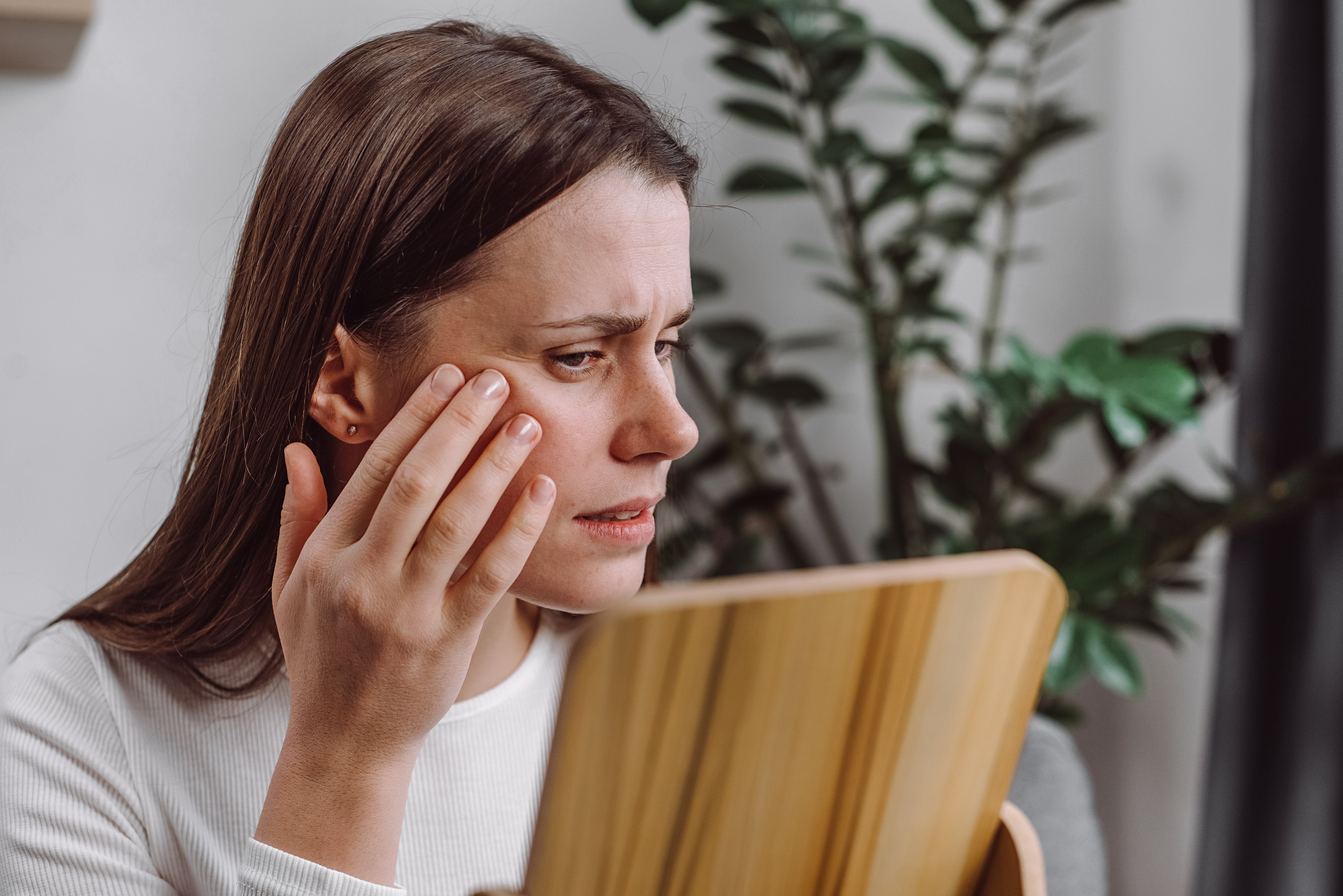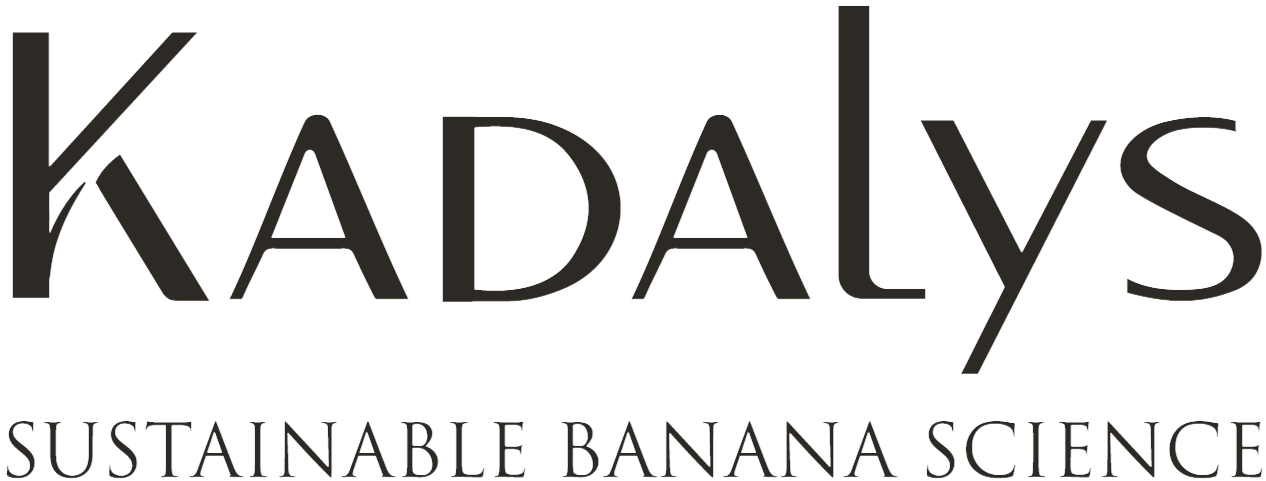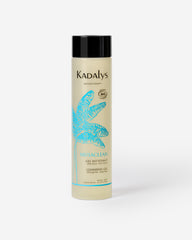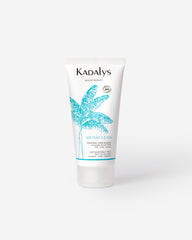
How can you effectively protect your skin from external aggression?
The skin is constantly exposed to external aggressors such as the sun's UV rays, pollution, temperature changes, stress, smoking and the blue light emitted by screens. These factors can weaken the skin's protective barrier and age it prematurely by generating free radicals, which damage cells and accelerate skin aging. In this article, we'll look at the visible signs of aggressed skin, and discuss the steps you can take to protect your skin from these external aggressors.
SUMMARY
- External factors that attack the skin
- Visible signs of aggressed skin
- How can you learn to regenerate your skin?
External factors that attack the skin
The skin is therefore constantly exposed to external aggressors that can weaken it and age it prematurely, including the sun's UV rays, temperature changes, wind, stress, smoking... Not forgetting pollution and the blue light emitted by screens, which can cause skin damage.
Air pollution is one of the main stress factors for the skin. Fine airborne particles can accumulate on the skin's surface, clogging pores and causing long-term damage by accelerating skin aging. Air pollutants such as fine particles, carbon monoxide, nitrogen oxides, sulfur dioxide and carbon dioxide can be harmful to the skin.
All these factors lead to an accumulation of free radicals, i.e. unstable molecules produced by our bodies when confronted with external aggression. Too many of these molecules "oxidize" and damage skin cells, making it difficult for them to repair themselves. These radicals damage cells and accelerate skin ageing, leading to what is known as "oxidative stress". These highly reactive molecules have a deleterious effect on the lipids, proteins and DNA of skin cells. They can also disrupt cell renewal processes and diminish the skin's ability to regenerate itself. The damage caused by free radicals accumulates over time, which can lead to loss of firmness, the appearance of wrinkles and age spots, and a reduction in skin radiance. What's more, the production of free radicals is also stimulated by the sun's UV rays: the negative effects are therefore amplified in the presence of solar radiation.
Visible signs of aggressed skin
First of all, dehydration and fatigue can be indicators of skin in distress. Sensitive skin, especially mature skin, can react to external factors and must be protected from pollution to avoid premature skin aging. Visible signs of aggressed skin can include the following consequences:
- Dryness
The skin's protective barrier, also known as the hydrolipidic film, is weakened: this makes it harder for the skin to retain water, and can lead to dryness and irritation.
- Premature aging
Oxidative stress caused by the accumulation of free radicals leads to a considerable drop in the skin's natural antioxidants, such as vitamins C and E, and destroys the natural flora on the skin's surface that helps protect it. Oxidative stress is thus responsible for altering the skin's hydrolipidic film: cell renewal is affected, wrinkles deepen and the epidermis loses elasticity.
- Skin imperfections
When the hydrolipidic film is altered, the skin becomes more vulnerable and tries to protect itself by producing more sebum to reconstitute a protective barrier. However, excess sebum can clog pores, preventing the skin from breathing: sweat glands become blocked, which can lead to the appearance of imperfections (pimples, blackheads). It's important to note that free radicals have a damaging effect on squalene, a lipid found in sebum. Squalene oxidizes in the presence of these free radicals, which can aggravate skin imperfections and even cause inflammatory acne.
- Dull skin
Under the effect of this oxidative stress, the skin no longer oxygenates properly. Pollutants, notably carbon monoxide, mix with the oxygen in our blood, causing a change in skin color. The result: a blurred, less radiant complexion.
- Redness
As the hydrolipidic film is altered, the skin tends to become more fragile: irritation and redness may appear.
How can you learn to regenerate your skin?
To effectively protect your skin from external aggressors, it's important to adopt the right skincare routine. Here are a few essential steps to follow for healthy, protected skin:
- Clean your skin
First of all, it's important to regularly cleanse your skin to eliminate impurities (perspiration, sebum...) and pollution residues accumulated during the day. Let's not forget that city dwellers often have sensitive skin, which is why it's best to use a gentle product like our Cleansing Gel, formulated without soap and enriched with natural surfactants to thoroughly cleanse the skin without attacking it. After use, this product leaves the skin clean and fresh.
- Exfoliate your skin
After thoroughly cleansing your skin, move on to exfoliation. Once or twice a week, exfoliating will revive your complexion's radiance and eliminate dead cells. We recommend you use our Organic Exfoliating Peel, enriched with fruit acids (AHA) and jojoba micro-beads, for a dual enzymatic and mechanical action. Fine pollution particles are eliminated, blood circulation is activated and cell renewal is stimulated. Your skin finally breathes and is ready to receive a moisturizing treatment.
- Moisturize your skin
Finally, the skin needs to be moisturized with a moisturizing cream to reinforce and reconstitute the hydrolipidic film. At Kadalys, we offer you the Musalis range, with our Smoothing Day Cream, capable of acting like a shield by boosting the skin's natural defenses and protecting it from external aggressions. Thanks to hyaluronic acid, it has a moisturizing and smoothing action, enabling it to smooth fine lines and wrinkles and promote skin relaxation. Every evening, apply Smoothing Night Cream to your face to stimulate cell renewal. Indeed, the night is ideal for detoxifying the skin and eliminating accumulated toxins. Sleep promotes accelerated cell regeneration, enabling greater microcirculation and optimal absorption of active ingredients into the epidermis, up to 8 times faster than during wakefulness. This night cream is enriched with squalane, the plant-based version of squalene, which, as we said earlier, oxidizes in the presence of free radicals.






